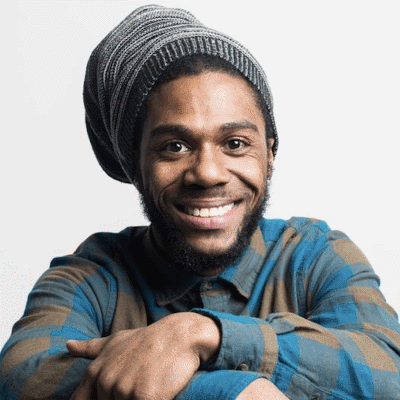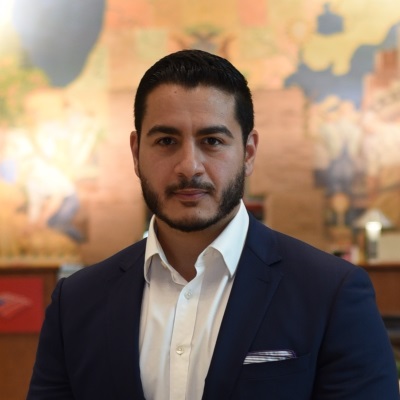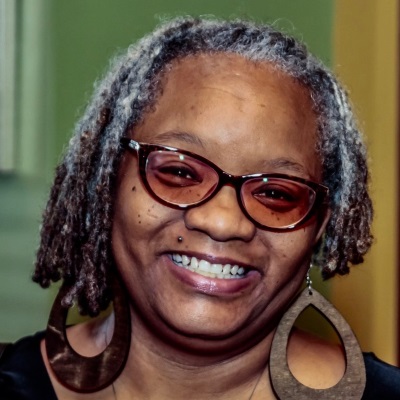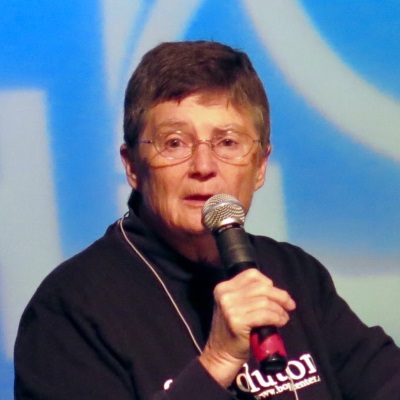Stepping Up for Social Justice Activism
As the call to end racial inequity rang loud across the nation and world this summer, the Wayne State University School of Social Work organized a series of community discussions that highlighted the rich history of activism in social work and the Metro Detroit community. The response to these events was robust and positive. We are continuing and expanding on these conversations with a three-part series focused on diversity, equity and inclusion. The first in this series, "Stepping Up for Social Justice Activism: How you can create change", was an online forum hosted on Thursday, October 22, 2020 from 4 6 pm highlighting the experience of local advocates working to advance social justice. Below you will find information on the speakers, recommended reads, community resources and a recording of the video.
Social justice is a driving force of the social work profession and at the heart of social welfare pioneers including Jane Adams. Social justice advocates work to ensure all members of society are afforded equal rights, opportunities, protection and benefits. Social justice addresses a myriad of societal issues related to equality, human rights, equity, and challenging power and privilege embedded in the status quo. It's found at the intersections of race, class, gender, sexual orientation and disability. As an urban institution based in the heart of Detroit, we cannot turn a blind eye to the social justice atrocities that have commanded the attention of Americans and impacted our fellow Detroiters. "Inspired by Shea Howell's writings and activism, we have brought together three activists who individually are working to bring about new ways of organizing people for change in the way our communities and nation are structured," noted WSU Social Work Board of Visitors Member and event co-organizer Sara Gleicher. "We hope this first event will lay the foundation for future discussions on subjects such as race, systems, policies, and what social justice looks like for individuals, families and our community as a whole."
Panelists included Teddy Dorsette III, Dr. Abdul El-Sayed, MD, DPhil and Tawana Petty. This panel and community discussion will be moderated by Shae Howell.
Social workers are taught how to recognize and acknowledge oppression, but often need real world examples of action. This panel of Detroit change makers, provides excellent examples of actions they can take. Sheryl Kubiak, Dean and Professor
Panelists

Teddy Dorsette III is a Deaf filmmaker, entrepreneur and social justice advocate from the Detroit area. He was educated at the University of Michigan where he received a degree in Screen Arts and Cultures and the Motion Picture Institute, where he concentrated on directing and producing award-winning films and content. He co-founded Teddyboy Entertainment LLC, and Def Lens Media LLC, to help provide opportunities for others to achieve their dreams as well as harness their skills and talents through different mediums. He also established a non-profit organization, Reel Def Entertainment, which aims to help children and young adults that are Deaf and hard of hearing to pursue their dreams in the creative arts. He is a passionate filmmaker whose dream and vision is to write stories that will educate others about the Deaf Experience and Black Deaf history. He currently works as the Communications Manager & Organizer for Detroit Disability Power.

Dr. Abdul El-Sayed, MD, DPhil is a physician, epidemiologist, progressive activist, educator, author, speaker, and podcast host. As a native Michigander born and raised in Metro Detroit, Dr. El-Sayed currently serves as the chair of Southpaw Michigan and as a CNN political contributor. His book, Healing Politics (Abrams Press), diagnoses our country's epidemic of insecurity and the empathy politics we will need to treat it, and his forthcoming book Medicare for All: A Citizen's Guide (Oxford University Press, 2021) co-authored with Dr. Micah Johnson, offers a no nonsense guide to the policy. He is the host of the podcast "America Dissected" serves as the DeRoy Visiting Professor at the University of Michigan and a Scholar-in-Residence at Wayne State University and American University, where he teaches at the intersection between public health, public policy, and politics. He was one of eight members of Vice President Biden's 2020 Unity Task Force for Healthcare and served as a former City of Detroit health director. Dr. El-Sayed has over 100 peer reviewed scientific publications that have been cited over 1700 times. He earned a Doctorate in Public Health from Oxford University and also holds a Medical Degree from Columbia University.

Tawana "Honeycomb" Petty is a mother, social justice organizer, youth advocate, poet and author. She is intricately involved in water rights advocacy, data and digital privacy rights education and racial justice and equity work. Petty is director of the Data Justice Program at Detroit Community Technology Project, co-founder of Our Data Bodies, a convening member of the Detroit Digital Justice Coalition, an anti-racism facilitator with Detroit Equity Action Lab and a Digital Civil Society Lab fellow at the Stanford Center on Philanthropy and Civil Society (PACS). Petty is also the director of Petty Propolis, a Black woman led artist incubator primarily focused on cultivating visionary resistance through poetry, literacy and literary workshops, anti-racism facilitation, and social justice initiatives.
Moderator

Shea Howell is a community activist in Detroit where she has lived for 50 years. She is a co-founder of the James and Grace Lee Boggs Center and a member of the advisory board of the Allied Media Conference. Currently she is engaged in efforts to secure water as a human right and to create liberated areas based on urban agriculture and local production. Howell works in coalitions supporting abolition, new forms of education and enriching democratic practices. She is co-editor of Riverwise Magazine, emphasizing emerging, alternative ways of living. Howell is also a professor of communication at Oakland University.
Event recording
The following is a recording of the event which was hosted on Zoom.
Recommended reads
-
Azadi: Freedom. Fascism. Fiction.: Roy, Arundhati: 9781642592603: Amazon.com: Books. (2020). Amazon.Com. https://www.amazon.com/Azadi-Freedom-Fascism-Arundhati-Roy/dp/1642592609
-
Combs, B. H. (2015). Black (and Brown) Bodies Out of Place: Towards a Theoretical Understanding of Systematic Voter Suppression in the United States. Critical Sociology, 42(4-5), 535-549. doi:10.1177/0896920514563089
-
El-Sayed, A. (2021). HEALING POLITICS: A doctors journey into the heart of our political epidemic. S.l.: HARRY N ABRAMS. Available on Amazon
-
Hawn Nelson, A., Jenkins, D., Zanti, S., Katz, M., Berokowitz, E., et al (2020) A Toolkit for Centering Racial Equity Throughout Data Integration. Actionable Intelligence for Social Policy, University of Pennsylvania. PDF
-
Howell, S., Doan, M. D., & Harbin, A. (2017). Detroit to Flint and Back Again: Solidarity Forever. Critical Sociology, 45(1), 63-83. doi:10.1177/0896920517705438 PDF
-
Howell, S., & Stephens, T. (2020). The unsettling of Detroit. Climate Justice and Community Renewal, 161-178. doi:10.4324/9780429277146-11
-
Lewis, T., Gangadharan, S. P., Saba, M., Petty, T. (2018). Digital defense playbook: Community power tools for reclaiming data. Detroit: Our Data Bodies. PDF
-
Mapping The Water Crisis - eBook. (n.d.). We The People. Retrieved October 22, 2020, from https://www.wethepeopleofdetroit.com/product-page/mapping-the-water-crisis-ebook
-
Petty, T., & Tata, J. (2018). Towards humanity: Shifting the culture of anti-racism organizing. Detroit, MI: Tawana "Honeycomb" Petty. Available on Amazon
-
Riverwise, Autumn Special Edition 2020. (2020, October). Retrieved from https://riverwisedetroit.org/
-
Satcher, D., Fryer, G. E., Mccann, J., Troutman, A., Woolf, S. H., & Rust, G. (2005). What If We Were Equal? A Comparison Of The Black-White Mortality Gap In 1960 And 2000. Health Affairs, 24(2), 459-464. doi:10.1377/hlthaff.24.2.459
-
Wong, A. (n.d.). I'm a 'High-Risk' Voter and I'm Furious. Teen Vogue. Retrieved October 21, 2020, from https://www.teenvogue.com/story/voters-with-disabilities-barriers-covid?utm_medium=social&utm_social-type=owned&mbid=social_twitter&utm_source=twitter&utm_brand=tv
Shared resources
The following resources were shared in the Zoom chat at the event.
- Michigan Coalition for Human Rights for advocacy event opportunities
- Submit a Letter to Detroit Charter Commissioners to adopt the Detroit Bill of Rights - individual sign and organization sign
- Detroit Disability Power - GOTV2020 and No Discrimination in Health Care Access initiatives
- Ford Foundation - Creative Futures initiatives
- Support Social Work Votes campaign
- The Power of I - First Person Storytelling in Times of Crises event
Sponsor
This event is supported by funds from the Edith Harris Endowed Memorial Lecture series. This annual lecture is made possible through the generosity of Mort Harris, Edith Harris' husband, and the Harris Foundation. Edith was a graduate student in our school from 1966 to 1968, but sadly her untimely death cut short a promising social work career. We are fortunate that her dream of making a difference in the lives of individuals and families through the advancement of knowledge and skills has been made possible with these annual lectures.
For additional information on the event and upcoming events in the Series visit the WSU Event Calendar or contact Betsy Vanderstelt at fq0994@wayne.edu.